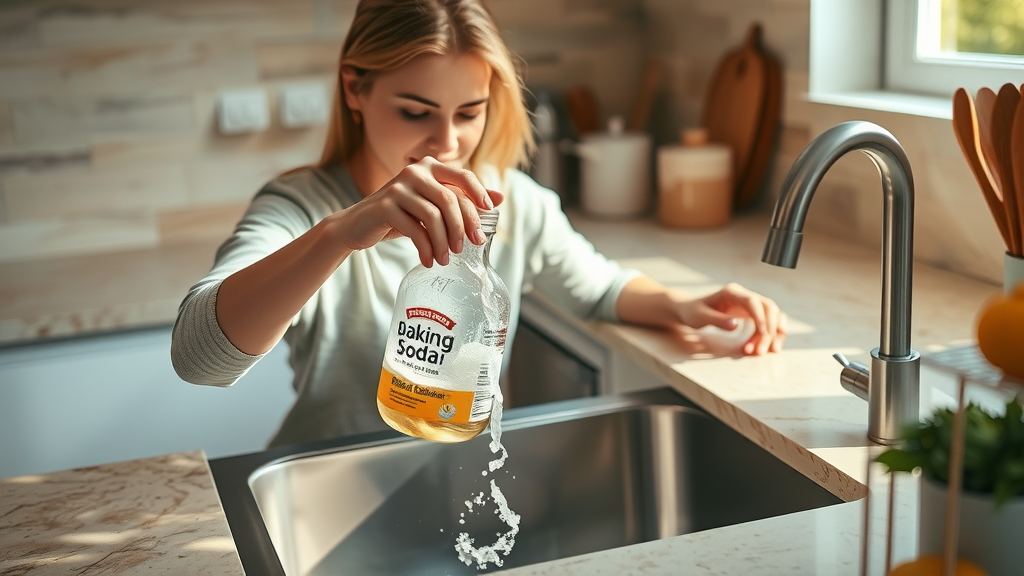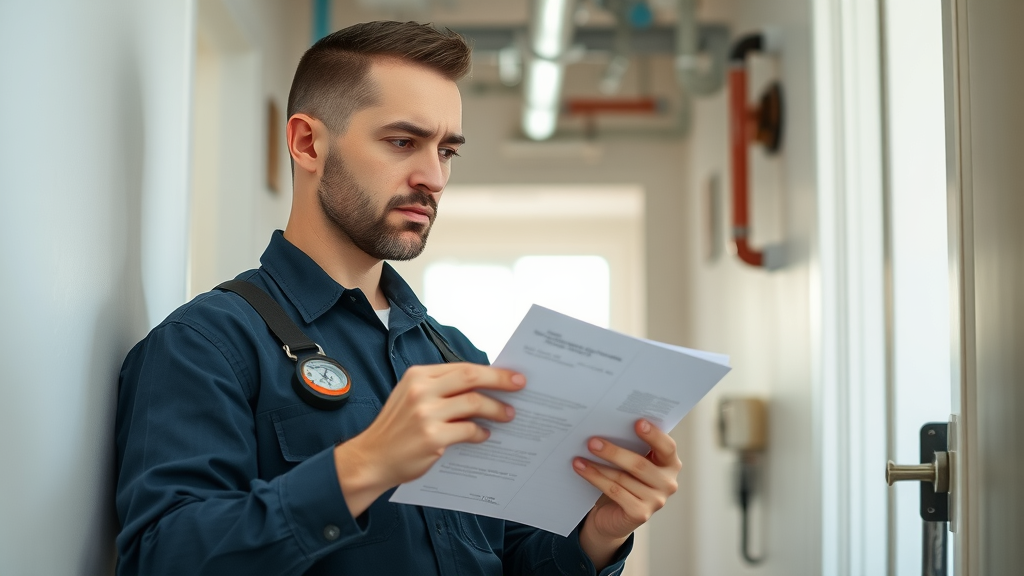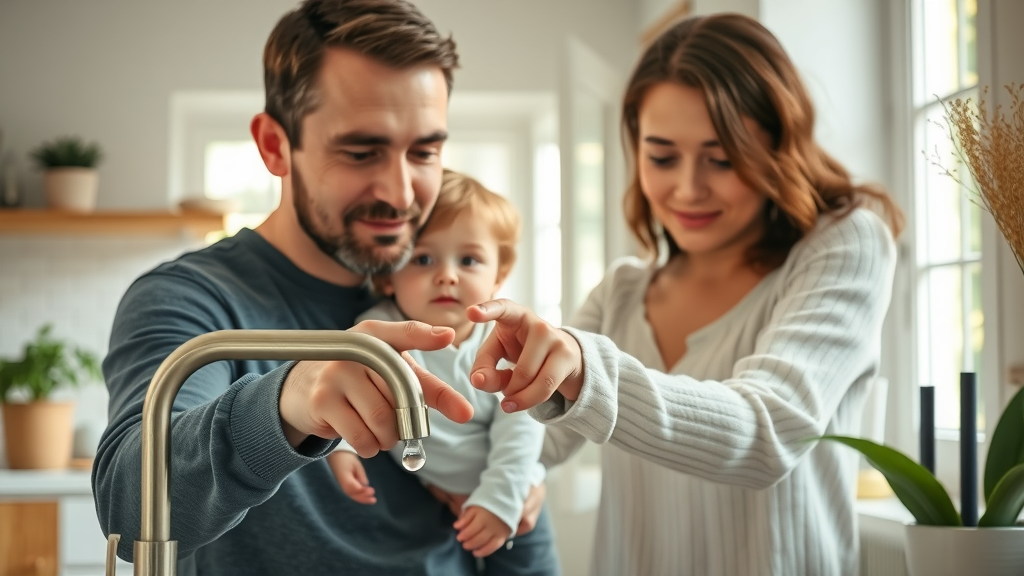- Did you know that nearly 40% of household energy bills stem from inefficient heating and plumbing systems? Discover 50 practical plumbing and heating tips that will help you slash costs, reduce water waste, and make your property more sustainable.
Why Sustainable Plumbing and Heating Tips Matter for Every Property

- Explore the impact of efficient plumbing tips and heating tips on energy bills, resource conservation, and property value. Learn why small plumbing tips can make a big difference.
Plumbing and heating tips are more than just good advice — they’re a powerful way to immediately decrease your property’s operating costs. By addressing issues such as leaky pipes, inefficient water heaters, and high-flow fixtures, you can significantly reduce your water bill and energy consumption. Small actions like adjusting water pressure or using the right drain cleaners contribute to substantial long-term savings.
Not only will these sustainable plumbing solutions help you save money, but they also increase the value and comfort of your home or business . Eco-friendly upgrades such as low-flow toilets, energy-efficient water heaters, and timely plumbing repairs can make your property more attractive to buyers and tenants. Perhaps even more important, each sustainable step you take helps conserve resources, safeguard the environment, and support your community’s resilience. Adopting effective plumbing tips isn’t just about the bottom line; it’s about your legacy and the wellbeing of those who use your space.
What You’ll Gain By Applying These 50 Plumbing and Heating Tips
- Understand the cost savings, sustainability benefits, and improved comfort these plumbing and heating tips will bring to your home or business.
By implementing the following plumbing and heating tips , you’ll enjoy immediate and long-term advantages. The first benefit is clear: a lower water bill and reduced utility costs thanks to more efficient water heaters, sealed leaks, and smart thermostats. Secondly, sustainable plumbing options like eco-friendly drain cleaners and insulation against frozen pipes allow you to minimize your impact on the environment without sacrificing comfort.
Even small steps, such as safe garbage disposal practices and routine plumbing inspection , can prevent major disasters like water damage and expensive repairs. Whether you’re a homeowner or a property manager, these practical plumbing tips empower you to maintain consistent water flow, reliable air conditioning, and a healthier living space. Ultimately, active stewardship of your plumbing system results in a more valuable, sustainable property — and peace of mind for years to come.
Comprehensive Table of Key Plumbing and Heating Tips
| Tip Number | Plumbing or Heating Focus | Potential Savings | Environmental Impact | Ease of Implementation |
|---|---|---|---|---|
| 1 | Install energy-efficient water heater | Up to 20% on energy bills | High – reduces fossil fuel use | Medium |
| 2 | Switch to low-flow fixtures | Up to 30% on water bills | High – less water waste | Easy |
| 3 | Insulate pipes to prevent frozen pipes | Saves on heating and repairs | Medium – lowers energy | Easy |
| 4 | Schedule annual plumbing inspection | Reduces major repair costs | High – prevents leaks | Medium |
| 5 | Practice safe garbage disposal methods | Prevents clog-related expenses | Medium – less pollution | Easy |
Top 10 Essential Plumbing and Heating Tips for Immediate Results
- Install energy-efficient water heater systems for reduced power usage.
- Use drain cleaner alternatives to keep pipes clear and eco-friendly.
- Regularly inspect your plumbing system for leaks and inefficiencies.
- Upgrade to low-flow fixtures and toilets for water conservation.
- Maintain proper water pressure to avoid plumbing repairs.
- Schedule professional plumbing inspection annually.
- Insulate your plumbing system to prevent frozen pipes.
- Opt for programmable thermostats for efficient air conditioning and heating.
- Address minor plumbing repairs promptly to avert water damage.
- Practice safe disposal methods in kitchen sinks to protect the garbage disposal and sewer line.

Tackling these ten plumbing and heating tips first will deliver rapid results in savings and sustainability. For instance, energy-efficient water heaters reduce daily energy consumption and ensure a steady supply of hot water, while low-flow fixtures drastically cut your water usage. Addressing leaks in your plumbing system and conducting regular plumbing inspections helps identify issues before they escalate, whilst insuring that your home’s plumbing is always in top condition.
Don’t underestimate the impact of proper garbage disposal care and maintaining healthy water pressure. Both can prevent major blockages and expensive plumbing repairs. By training everyone in your household or organization to follow safe disposal rules and monitor the fixtures, you make sustainability part of your daily habits. Within a short time, you’ll notice lower utility bills, fewer unexpected handyman visits, and greater peace of mind.
11–20: Smart Water Heater and Heating System Plumbing Tips
Upgrade to Tankless Water Heaters for Improved Efficiency
- Why switching to tankless water heater systems can boost sustainability and reduce costs.
Tankless water heaters are revolutionizing the way we think about water heating . Unlike traditional tanks, tankless models only heat water as you need it, resulting in significantly lower energy bills and reduced standby heat loss. Although the initial investment may be higher, tankless options quickly pay for themselves and offer a reliable solution for uninterrupted hot water — a great representation of smart plumbing tip implementation.
Switching to tankless systems particularly benefits families and businesses aiming to maximize energy efficiency and minimize wasted water. Not only will you see a difference in your monthly costs, but you’ll also be supporting a more sustainable future for the community by shrinking your overall carbon footprint.
Regularly Flush Water Heater Tanks to Prevent Build-Up
- Practical plumbing tips to extend water heater lifespan and maximize performance.
Sediment and mineral build-up in your water heater are silent efficiency killers. Over time, they can lead to noisy operation, reduced hot water output, and costly failures. Flushing the tank annually (or as recommended by your manufacturer) is a simple yet powerful plumbing advice that significantly extends the life of your hot water heater and ensures consistent water flow .
This maintenance step is especially necessary in areas with hard water, as excessive mineral deposits will clog internal components and sabotage overall performance. By integrating regular tank flushing into your routine plumbing repairs and maintenance, you’ll protect your investment and enjoy uninterrupted comfort through every season.
21–30: Best Practices for Drain Cleaners, Sewer Lines, and Garbage Disposal Care
Choose Eco-Friendly Drain Cleaner Options for Sustainable Plumbing
- Reduce chemical usage and protect your plumbing system with natural drain cleaners.

The right drain cleaner can make all the difference, not just for your pipes but also for environmental health. Chemical-laden drain cleaners, although effective, can corrode pipes and pollute water systems. Instead, natural options like baking soda and vinegar offer safe and effective alternatives for routine drain cleaning . Simply combine these ingredients, let them fizz in the drain, and flush with hot water for regular maintenance.
Using eco-friendly drain cleaners also minimizes exposure to harmful fumes and reduces the chances of accidentally damaging your plumbing system . Reserving harsh chemicals for only the toughest clogs (and avoiding regular use) is a core sustainable plumbing tip that extends the lifespan of your pipes while keeping toxic substances out of the environment.
Perform Routine Sewer Line Checks to Prevent Plumbing Issues
- How regular inspections safeguard your property and avoid costly plumbing repairs.
Ignoring your sewer line can spell disaster in the form of backflow, slow drains, and even water damage . Regular inspections, ideally once every couple of years or after major storms, help catch minor blockages or root intrusions before they require full-blown plumbing repairs. Arrange for a professional plumbing service to check for warning signs like slow draining, frequent clogs, or odd odors — all indicators that your sewer line needs attention.
Proactive plumbing tips such as these don’t just keep your property running smoothly; they also ensure you avoid costly disruptions and environmental contamination that arise when neglected sewer systems overflow or collapse.
Proper Garbage Disposal Use to Preserve Drain Health
- Critical tips for what to avoid putting down the garbage disposal and keeping pipes clear.
One recurrent plumbing problem is the misuse of the garbage disposal . Avoid introducing non-biodegradable items, fibrous foods, oil, grease, eggshells, and even starchy leftovers down the disposal. These substances not only jam up the blades but also risk clogging your pipes and eventually your sewer line.
Always run cold water before and after disposal use to ensure all remnants are flushed into the system without leaving sticky residue. Taking the time to educate your household or building staff in these simple, yet effective, plumbing tips ensures fewer clogs, less need for drain cleaner, and reduced likelihood of emergency plumbing repairs.
31–40: Frozen Pipes, Water Damage Prevention, and Air Conditioning Plumbing Tips

Insulate Pipes to Effectively Prevent Frozen Pipes in Winter
- Actionable plumbing tips to stop accidents and water damage before they start.
Frozen pipes can cause catastrophic water damage and demand expensive plumbing repairs. To prevent frozen pipes , insulate all exposed plumbing — particularly in basements, crawl spaces, and attics. Foam tubing, pipe wrap, or even heating cables are cost-effective options that drastically lower your risk of burst pipes during cold snaps.
Consider pairing insulation with other plumbing tips like maintaining a consistent indoor temperature and letting taps drip during extreme cold. These actions keep water moving and pressure steady, safeguarding the plumbing system and saving you from plumbing emergencies when temperatures plunge.
Detecting and Managing Water Damage from Plumbing Issues
- How to recognize early signs of water damage and act quickly with plumbing repairs.

The key to avoiding costly water damage lies in early detection. Be on the lookout for discoloration on ceilings or walls, warping of floors, strange musty odors, and even minor changes in water pressure . These are all tell-tale signs of hidden leaks or faulty connections in your plumbing system.
Once detected, act quickly: shut off the main water supply, use a flange plunger to unclog problem areas, and call a trusted plumbing service if the job is beyond your experience. Rapid response to these issues keeps damage minimal and repair costs under control.
Optimize Air Conditioning Units for Maximum Plumbing System Efficiency
- Simple maintenance tips to balance air conditioning and sustainable plumbing.
Air conditioning systems often connect directly to the plumbing system via condensate drains. If these aren’t maintained, they become prime spots for mold growth and water leaks. Keep condensate lines clear by scheduling biannual cleaning, checking for blockages, and ensuring proper insulation.
Also, change air filters regularly. Dirty filters force units to overwork, leading to excess condensation and potential overflows —an overlooked source of water damage . Integrating plumbing and air conditioning maintenance in your regular home care routine is a smart way to prevent problems and save both water and energy.
41–50: Proactive Plumbing Service, Inspection, and Repair Tips
Schedule Regular Plumbing Inspection Services Yearly
- Why periodic professional plumbing inspection and service helps sustainability and peace of mind.

A yearly plumbing inspection by a licensed plumbing service is among the most valuable investments you can make in your property. During inspections, professionals evaluate for early signs of corrosion, unnoticed leaks, sewer line intrusion, improper water pressure, and more. This proactive approach keeps your plumbing system resilient, prevents small issues from snowballing, and maintains efficient water flow.
Routine checks also help keep your air conditioning and heating systems operating smoothly. By identifying shortcomings before they become emergencies, you support both sustainability and the comfort and safety of everyone under your roof.
DIY Plumbing Repair Techniques for Sustainable Plumbing Solutions
- When to call a plumbing service and when you can perform simple plumbing repairs yourself.
With the right knowledge and a few basic tools, many minor plumbing repairs are safe for DIY — like tightening a loose connection, replacing a washer, or using a flange plunger on a clogged drain. These techniques save money and are less disruptive than waiting for a pro.
However, always recognize your limits: If you encounter a significant plumbing issue involving the main water supply, sewer line, or water heater, don’t hesitate to contact licensed plumbing services. Knowing when to DIY and when to call experts is itself a top sustainable plumbing tip that keeps your system running efficiently for years to come.
Preventative Plumbing Tips to Detect Problems Early
- Top strategies for identifying early plumbing issues before they escalate.
Proactive habits are your first defense. Routinely check beneath sinks for any dampness, examine visible pipes for corrosion, and test water pressure at various fixtures. Make a habit of listening for unusual noises in the plumbing system and keep an eye out for spikes in the water bill that could indicate hidden leaks.
Setting monthly or quarterly reminders to perform these quick inspections takes only a few minutes but delivers outsized benefits — from catching leaks and blockages to identifying the early warning signs of plumbing problems . Prevention is always cheaper and easier than emergency repairs.
"Adopting these plumbing and heating tips isn't just about saving money—it’s about ensuring a sustainable future for our homes and communities." – Certified Master Plumber
Key Takeaways from 50 Practical Plumbing and Heating Tips
- Implementing these plumbing and heating tips will lower utility costs, safeguard your property from water damage, and promote a more sustainable environment. With regular inspections, smart upgrades, and preventative habits, you’ll gain peace of mind, added property value, and lasting comfort — all while making a positive impact on the world.
Common People Also Ask Queries on Plumbing and Heating Tips
What are Signs That My Plumbing System Needs Repair?
- Look for symptoms like irregular water pressure, unusual noises, persistent leaks, or frequent clogs, which indicate plumbing system problems and the need for expert plumbing repair.
If you notice fluctuating water pressure, odd sounds (like banging or gurgling), leaks under sinks, wet spots on floors or ceilings, or recurring clogs, your plumbing system could have underlying issues. Don’t ignore these warning signs — early detection allows for prompt plumbing repairs, saving money and avoiding further water damage.
How Often Should I Schedule Plumbing Inspections?
- An annual plumbing inspection by a licensed plumbing service is recommended to catch plumbing issues early and keep heating systems efficient.
Industry experts recommend scheduling a professional plumbing inspection at least once per year. These routine checks allow you to spot small problems like minor leaks, corrosion, or blockages before they can turn into disruptive and costly plumbing emergencies, ensuring your heating and water systems operate efficiently year-round.
Can I Use Store-Bought Drain Cleaners Regularly?
- Frequent use of chemical drain cleaners can damage your pipes; choose natural alternatives or consult plumbing services for persistent problems.
While chemical drain cleaners may offer short-term relief, their harsh ingredients can corrode pipes and disrupt your plumbing system over time. Instead, favor natural solutions like baking soda and vinegar for regular drain maintenance. For tough, persistent clogs, always seek out professional plumbing services to avoid unnecessary damage and ensure proper resolution.
Frequently Asked Questions About Plumbing and Heating Tips
- How can I tell if my water heater is wasting energy? If your water heater takes a long time to deliver hot water, makes unusual noises, or shows signs of leaks, it may be operating inefficiently. Consider upgrading to a newer, high-efficiency model and perform regular maintenance to ensure optimal performance.
- What is the easiest way to prevent frozen pipes in winter? Pipe insulation is the most reliable method. Additionally, maintain steady indoor temperatures and let faucets drip during cold snaps to keep water circulating and reduce the risk of frozen pipes.
- Do plumbing tips differ for older homes? Yes! Older homes may have outdated pipes or fixtures more susceptible to leaks, corrosion, or blockages. Schedule a plumbing inspection to assess upgrades and tailor tips for your property’s specific needs.
- Is it sustainable to do your own plumbing repairs? DIY repairs are sustainable for minor issues like leaks or pipe fittings if done properly. However, always call a professional plumbing service for complex problems involving the sewer line, water heater, or major water supply.
- What is the best schedule for plumbing service and inspection? Annual professional inspections are best for most properties, but older buildings or those with previous plumbing issues may benefit from semi-annual checks to preempt major repairs.
Ready to Transform Your Property? Apply These Plumbing and Heating Tips Today
- Empower yourself to implement these 50 plumbing and heating tips, and enjoy a more sustainable, efficient, and cost-effective property now.
Conclusion
Start implementing these sustainable plumbing and heating tips today to slash costs, improve comfort, and protect your property from future problems—one simple upgrade at a time.
Sources
- US Department of Energy – https://www.energy.gov/energysaver/heat-and-cool/water-heating
- US EPA WaterSense – https://www.epa.gov/watersense
- HomeAdvisor: How to Insulate a Home & Prevent Frozen Pipes – https://www.homeadvisor.com/r/home-insulation-to-prevent-frozen-pipes/
- Angi: Plumbing Inspection Checklist – https://www.angieslist.com/articles/plumbing-inspection-checklist.htm
To further enhance your understanding of sustainable plumbing and heating practices, consider exploring the following resources:
- “10 Plumbing Tips Every Homeowner Needs To Know” ( paragonplumbingco.com )
This article offers essential advice on maintaining your plumbing system, including regular leak checks and understanding water pressure, which are crucial for sustainability.
- “Top 13 Plumbing Tips for Homeowners” ( callhamilton.com )
This resource provides comprehensive tips, such as scheduling inspections and preventing frozen pipes, to help homeowners maintain efficient and sustainable plumbing systems.
By delving into these articles, you’ll gain practical insights to implement effective plumbing and heating strategies, leading to cost savings and a more sustainable property.
 Add Row
Add Row  Add
Add 




Write A Comment